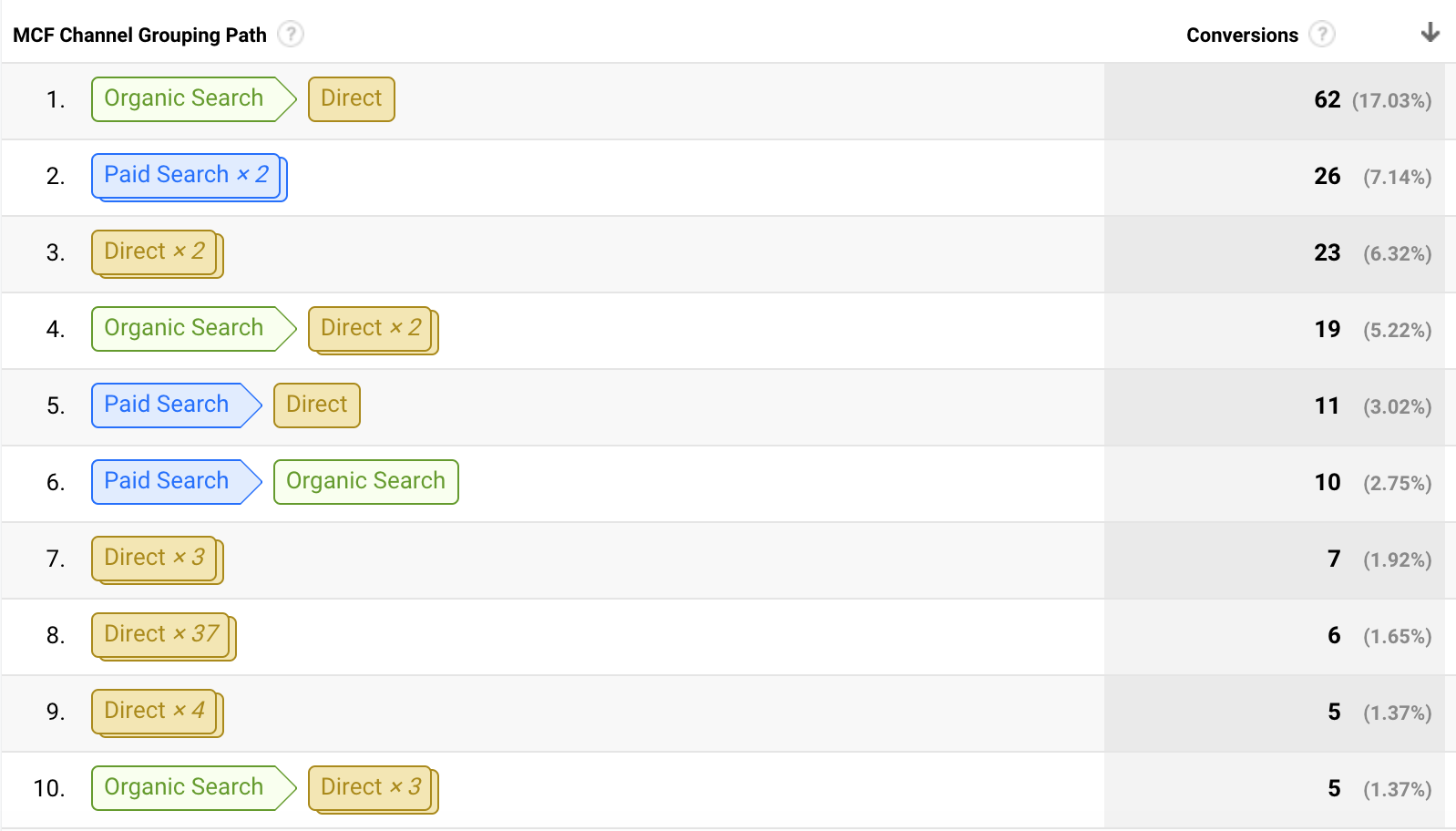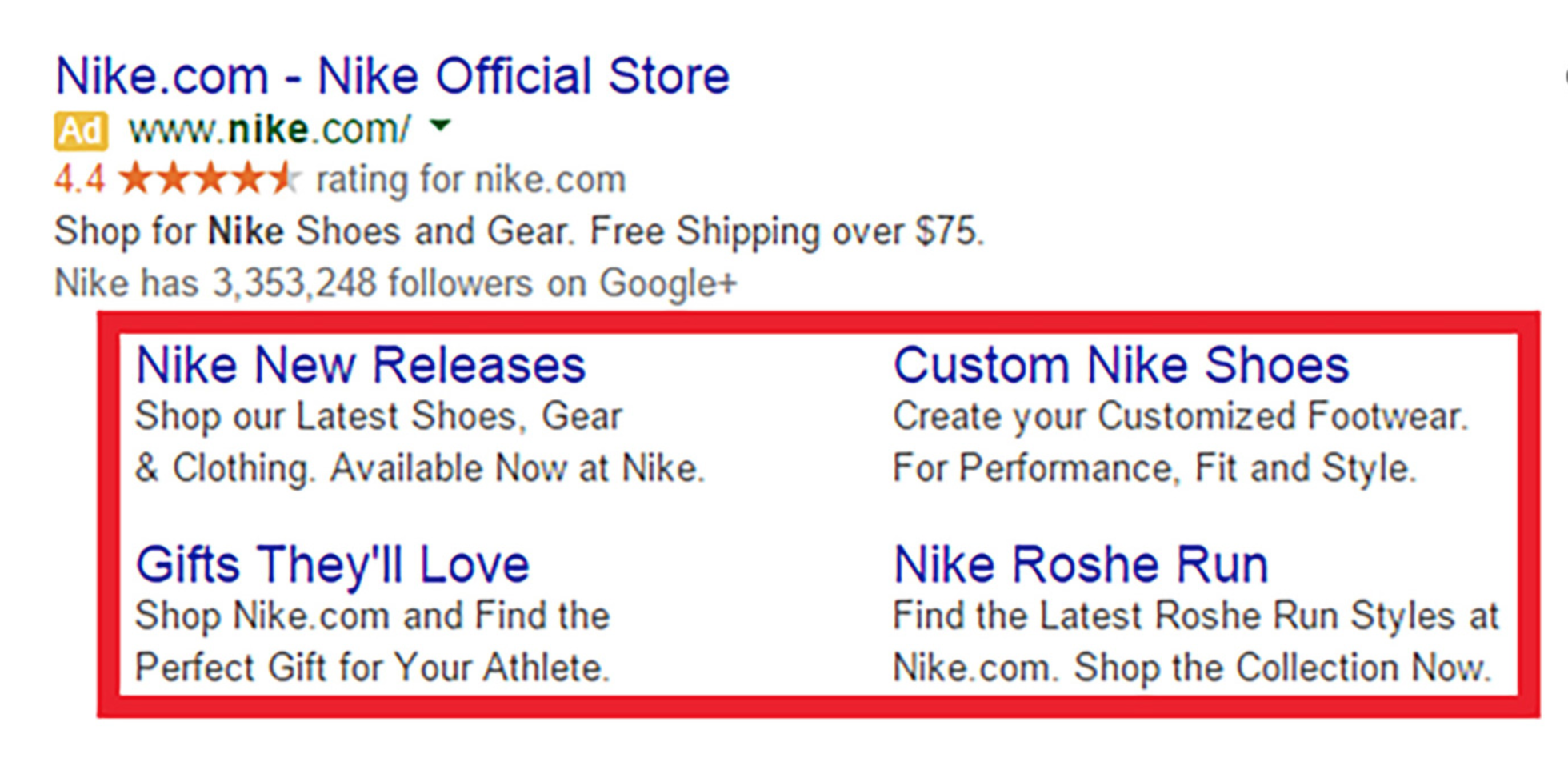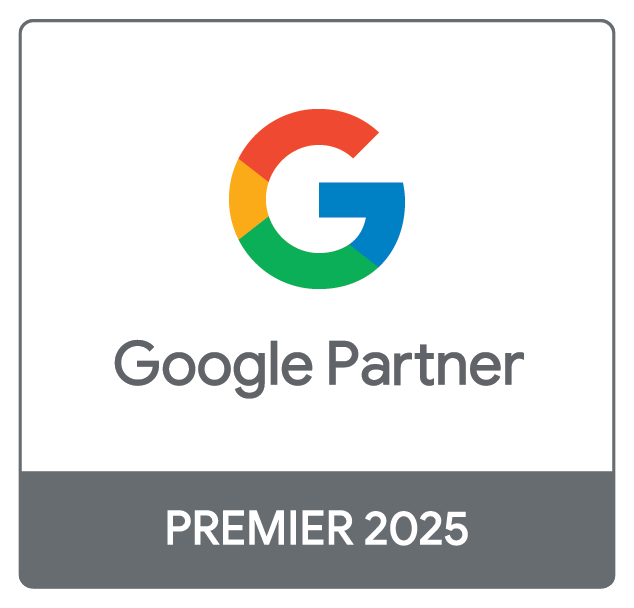You're probably thinking: why have a blog about SEO and PPC working together?
Well, in a lot of search results (SERPs), you see PPC and then SEO listings. So, if both listings are in the same area, can they help each other out?
Spoiler alert - yes.
“55% Of People Don’t Know Which Are Paid Ads On Google” - VARN Research
It’s quite an interesting stat. Over 50% of people are searching and they don’t know if they’re clicking an ad. So surely the user data PPC has can have a number of benefits for an SEO campaign.
Let's see how SEO and PPC can help each other.
How PPC can help SEO
Discover new keywords
For the first idea, go into Analytics > Acquisition > Google Ads > Keywords.
When you get to this report, adjust the data range to around 6 months, so you have a big chunk of data to look at.
This report shows you which keywords people are using to click on your ads. From the data, you might have noticed keywords appearing in this report that you aren’t targeting in SEO. This can help you spot trends and drive more traffic and conversions to the website.
If you have found a new keyword, you could create a new page, a blog post, or you could add that keyword into existing pages.
Find PPC keywords that have the highest conversion rate
In the same report you can change the data to show the landing page that has the highest conversions. With this knowledge, we can focus on keywords that are really working.
We can also create new pages and content around that keyword to help drive conversions. Improving the design of a page can also help increase conversions.
Find poor performing keywords
Using the same report as the last point, we can identify low converting keywords. Could these keywords be improved by designing a better landing page?
Also, if the keyword isn't converting, perhaps the PPC money could be invested in the better performing keywords.
Use best performing PPC Copy for SEO
Find the best performing PPC ad copy and use it for the meta title and meta descriptions.
Find out which ads have the highest CTR. Work with the PPCer and ask which adverts convert the best.
Be careful with this idea because if you do change your meta title and description it may affect the organic rankings. Many companies are resistant to changing their headlines when they are ranking for certain keywords because it can affect organic rankings.
Test out SEO strategy with PPC
You can test your meta titles and descriptions with paid search to see which ones have the highest CTR.
Test out meta titles and descriptions with PPC ads. If they convert on a PPC campaign, they are very likely to convert in SEO.
Testing meta titles and descriptions organically can take a long time. With PPC, though, you can see the results very quickly. You can quickly identify which ones are working well and which aren’t.
Discover Potential Sites for Link Building
The display network gives you a great opportunity to access potential websites that you can do some good old link building with.
Go into Google Ads > Display Network. When you have created the campaign, Placements becomes an option for your targeting strategy.
You can use these websites to outreach content you have and gain valuable links.
How SEO can help PPC
SEO professionals can help their PPC friends by creating a keyword research document to see if they can use any of these keywords in their campaigns. Although PPC will have their own PPC keyword research, the SEOers of this world may have different research that could help the PPC department.
If you look in Google Analytics, it shows the path users have taken to convert.
So if you go into Analytics > Conversions > Multi-Channel Funnels > Top Conversion Paths you will find something like this.

From this report, we can see that 10 conversions started from PPC but ended up being SEO conversions.
From this data it shows that SEO & PPC working together is very important.
If you are a PPC person, ask the SEO team their thoughts and opinions as it can really help drive more conversions.
Inform PPC about best & worst performing rankings and pages
Have a discussion about the best and worst rankings. If you're first for that term should PPC even run a campaign for that keyword? Should they use the budget elsewhere? That's a discussion you could have with the PPC person.
If you aren’t performing well in the rankings for a highly-searched term, maybe PPC can allocate more budget to this, rather than the rankings that perform really well.
Also, if rankings are going down there might have been a Google update or a potential penalty on your site. It's worth notifying your PPC team of these possibilities - they could create a campaign and minimise the impact. This is especially important if it's a valuable keyword.
Add content to Sitelinks
You probably know this but Google Ads has an extension that is featured on their ads called sitelinks. See below:

On your ad campaigns, it might be worth adding content/blog posts on these ads by placing them in the sitelink section.
It’s a great discussion to have with the PPC team as the blog will get more visitors and more awareness. It has extra benefit by increasing the CTR on the ads. When thinking about content to feature, make sure it’s part of the funnel or that blog posts receive a tonne of conversions. You don’t want to be wasting PPC money!
Use Remarketing to Bring Back Visitors
Make remarketing work better for you by discussing this with the SEO and content teams.
Remarketing to previous customers is a difficult task: Imagine going to a website and seeing an ad about that site. You probably don’t care about the ad, so you don’t click on it.
But what if the ad was advertising a free ebook or offer? Maybe the ad could show the product that has the highest conversion rate. Additionally, content marketing pieces can also support remarketing campaigns. For example, a company may decide to remarket to their existing users that they have recently launched a brochure to encourage downloads and further engagement.
I hope you enjoyed the list of ideas featured in this post. Try a couple of them out and let me know how you get along. My email address is john.cutts@adtrak.co.uk.
